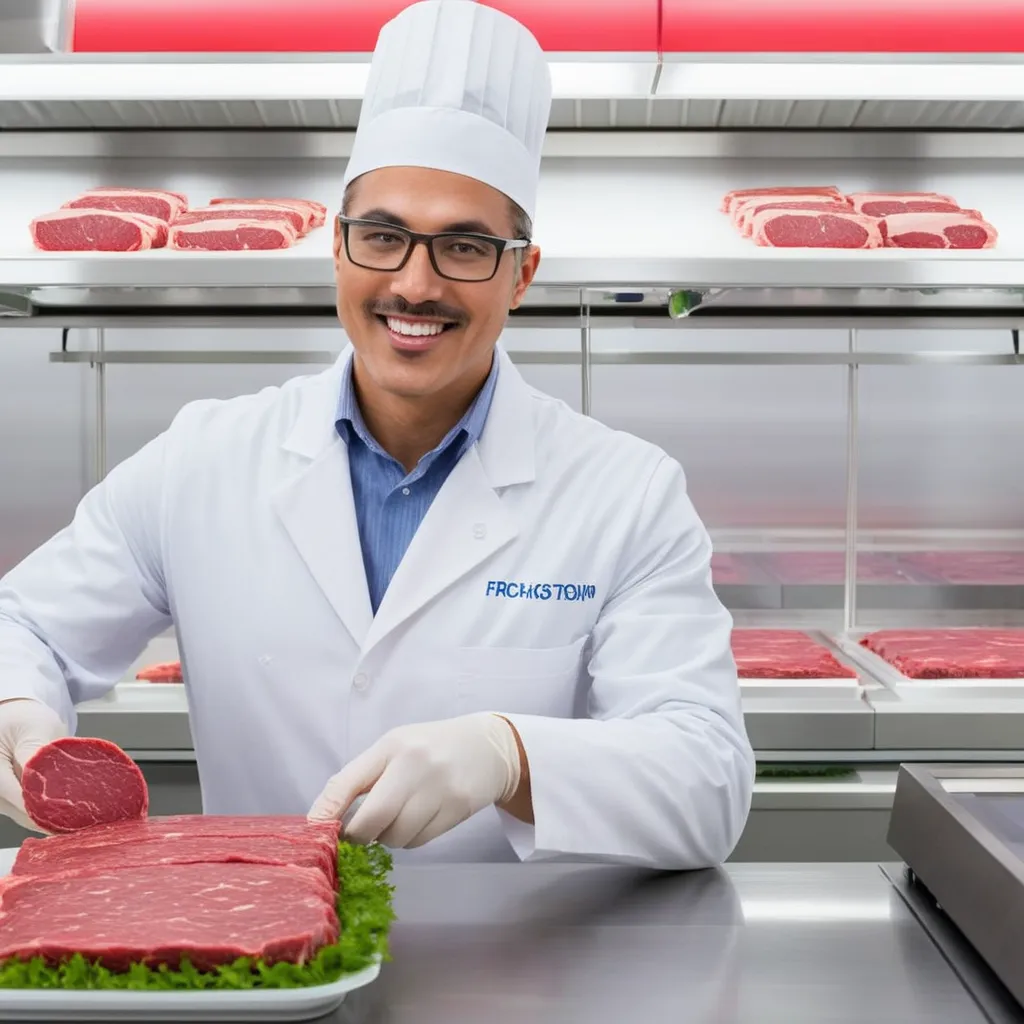The Future of Food: Lab-Grown Meat
The dinner table is undergoing a transformation, and at the heart of this culinary evolution is the concept of lab-grown meat. It's not science fiction; it's a glimpse into the future of food production that promises sustainability, ethical considerations, and a whole new culinary experience.

Cultivating a Sustainable Future
Beyond Traditional Agriculture
My Journey to Sustainable Living
My interest in lab-grown meat began during my quest for a more sustainable lifestyle. Traditional meat production is a resource-intensive process with significant environmental impacts. Lab-grown meat, also known as cultured or cell-based meat, offers a potential solution by significantly reducing the environmental footprint associated with traditional livestock farming.
Environmental Benefits
Lab-grown meat requires fewer natural resources, less land, and produces fewer greenhouse gas emissions compared to traditional livestock farming. It's a promising step toward creating a more sustainable and eco-friendly food system.
The Science Behind Lab-Grown Meat
From Cells to Steaks
My Eye-Opening Lab Tour
I had the opportunity to tour a lab where cell-based meat was being cultivated. The process involves harvesting a small number of animal cells and providing them with the necessary nutrients to grow into muscle tissue. The result? Real meat without the need for raising and slaughtering animals.
Ethical Considerations
Lab-grown meat addresses ethical concerns related to animal welfare. By producing meat without raising and slaughtering animals, it offers a more humane alternative for those who are concerned about the treatment of animals in traditional farming practices.
Culinary Possibilities
Beyond Burgers and Nuggets
My culinary Adventure
Tasting a lab-grown meat burger opened my eyes to the culinary possibilities. The texture and flavor were remarkably similar to conventionally produced meat. The potential to replicate various meat products, from steaks to sausages, means that lab-grown meat could offer a familiar and satisfying culinary experience.
Customizable Nutrition
Scientists can control the nutritional content of lab-grown meat, providing an opportunity to create healthier options. This customization opens doors to meat products with specific nutrient profiles, catering to individual dietary needs and preferences.
Challenges on the Plate
Overcoming Hurdles
The Cost Conundrum
While lab-grown meat has immense potential, it currently faces challenges, especially in terms of production costs. The process of growing meat cells in a controlled environment requires significant technological infrastructure. However, ongoing research and advancements aim to address these cost-related hurdles.
Regulatory Roadblocks
The journey to bring lab-grown meat to mainstream markets involves navigating complex regulatory landscapes. Ensuring that these products meet safety standards and gain consumer trust is a critical step for their successful integration into the food industry.
Consumer Acceptance
Shifting Mindsets
A Taste of the Future
Consumer acceptance plays a pivotal role in the success of lab-grown meat. Education and awareness campaigns about the environmental and ethical benefits are crucial for shifting mindsets. I found that once people understand the potential positive impact, they become more open to incorporating lab-grown meat into their diets.
Balancing Expectations
Lab-grown meat isn't positioned as a replacement for traditional meat but as an alternative. Striking a balance between promoting its benefits and managing consumer expectations is vital for fostering acceptance and integration into everyday diets.
The Plate of Tomorrow
In conclusion, the future of food is undergoing a fascinating transformation with the advent of lab-grown meat. It offers a sustainable, ethical, and potentially healthier alternative to conventionally produced meat. While challenges exist, ongoing research and consumer education are paving the way for a culinary landscape that is not just delicious but also mindful of our environmental impact. So, here's to the plate of tomorrow – where science, sustainability, and flavor converge for a more conscious and delectable dining experience.

No comments:
Post a Comment